ADSactly Tech News - Robotic Cats That Help the Elderly Reporting for Work!
ADSactly Tech News: Robotic Cats That Help the Elderly Reporting for Work!
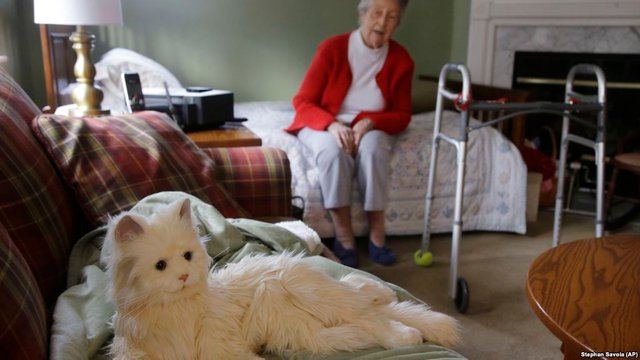
Image Source: Stephen Savola - AP
One of the biggest challenges our world faces in the coming decade reolves around the number of elderly baby-boomers that will be leaving the work force and joining those that came before them in retirement. America is expecting a huge increase in healthcare costs associated with its rapidly aging population. Many of these retirees will find themselves living in nursing and retirement homes expected to carry on with their lives and find a new purpose in their old age.
Such a drastic change in lifestyle can be shocking. Reinventing ourselves is difficult in our youth and it only becomes more difficult as we get older. Retirement homes can be cold and lonely places. If you are an elderly person not fortunate enough to move into a home with a few friends or you lack an ability to make new friends life may become a bit dull and isolating. This leads me to my point...
What if there was a cat that didn't need to be cleaned up after, kept an elderly person company and helped remind them to take their medicine. Do you think this would be an asset to a loved one that found themselves stuck in a retirement home without a lot of friends?
Making a cat that could serve such a purpose has been the goal of toy maker Hasbro in collaboration with some of the greatest scientifc minds at Brown University in Providence, Rhode Island. In fact, researchers at the university have received a $3-million-dollar award from the National Science Foundation to add artificial intelligence, or A.I., to Hasbro’s “Joy for All” robotic cat.
Image Source: Stephen Savola - AP
Would you be surprised to learn that the cat I'm speaking of has been for sale for the past two years? As previously stated, the cat was made to act as a “companion” for the elderly. Some of its coolest features include the ability to make noises similar to that of a real cat and it also lovingly seeks attention from its owners.
The Brown-Hasbro project is aimed at developing additional abilities for the cat. The team includes researchers from Brown’s medical school, local hospitals and a designer at the University of Cincinnati.
Researchers at Brown’s Humanity-Centered Robotics Initiative are working to decide which activities older adults may need the most help with. Such activities include finding lost objects and reminding the person to take medicine or visit their doctor.
Bertram Malle is a professor of cognitive, linguistic and psychological sciences at Brown. He said that the researchers do not want to make unrealistic promises of what the cat can do.
I find this project absolutely fascinating and developing additional abilities for this cat seem like a good priority! If you want to make me fall in love with a cat, you'll have to convince me that it really is a cat first! It needs to be fun, playful and loving. If you can give it abilities that help it accomplish these tasks, I will appreciate its presence and be happy to have it hang around!
Bertram Malle's partner Michael Littman is a computer science professor who hopes to make the robotic cat perform a few new interesting activities while keeping the cost down to just a few hundred dollars. Hasbro’s current “Joy for All” cat costs $100. They must be very careful not to allow costs to over run as the likelihood of seeing them adopted hinges on affordability for seniors.
It is because of these ideas that the new project has been given an appropriate name: Affordable Robotic Intelligence for Elderly Support, or ARIES.
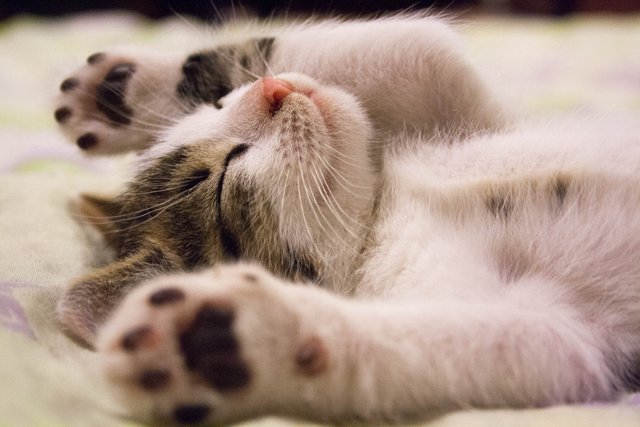
Image Source: Creative Commons - Pexels
Jeanne Elliott has a 93-year-old mother named Mary Derr. Her mother lives with her in South Kingstown, Rhode Island. One thing readers should know is that Mary Derr has dementia. According to Jeanne, the Joy for All cat that she bought this year has become a true companion for Derr and really improved her quality of life.
The robot cat stays with Derr and keeps her calm while Elliot is at work. Derr treats it like a real cat, even though she knows it is electronic.
This is really heart-warming don't you think? I know many people would argue that a real cat may be better but I'm not so sure. We touched on the fact that this cat doesn't need to be looked after, taken care of and it doesn't make a mess. These are benefits I could see really coming into play when you talk about their interaction with the elderly.
Elliot told the Associated Press her mother often forgets things. She added that a cat that helps her mother to remember to take her medicine and be careful when she walks would be great.
This is another outstanding benefit of having a robo cat. It can do things an ordinary cat simply could not. Have you ever had a cat that reminded you to pick up milk from the store or to take your vitamins in the morning? I think not.

Image Source: Creative Commons - Pexels
Diane Feeney Mahoney, a professor at the Massachusetts General Hospital’s Institute of Health Professions School of Nursing described the cat as a tool that could make things easier for someone caring for a person with middle-stage dementia.
She also stated that she thought it could also be useful in elder care homes that do not permit people bring in real animals.
However, the goal may be set but the sentiment around this is still up for debate. Scientists are studying how people feel about robot cats and how the elderly react to their mannerisms. There is proof that they can make a positive change in the lives of elderly people so the pursuit is not in vain. Another thing scientists are trying resolve is how new and improved robot cats would complete helpful activities and how they might go about communicating that information to their owners. One thing we should not expect are talking cats.
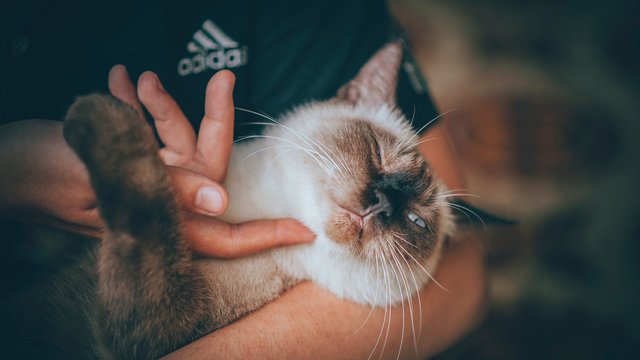
Image Source: Creative Commons - Pexels AP
When one of the researchers involved in this study was asked what was wrong with giving the cats an ability to talk he replied, “cats don’t generally talk to you."
I would tend to agree with that point but then again, they don't normally remind you to take your medicine either do they?
It is interesting however how they may go about solving this communication problem between robot cats and humans. Considering they won't be able to talk it is quite limiting to body language. For example, it appears that researchers are looking into whether their robot cat could move its head in a special way to successfully communicate its message.
In the end, they hope to create an exchange between the human and the cat in which the human feels the cat needs them. By doing so, the researchers hope they can even help prevent feelings of loneliness and sadness among elderly people.
This is a very good idea! I actually feel warm and fuzzy when I think about this... I know it must be lonely to be put in some retirement home or nursing community. Without family around, feeling loved and appreciated becomes all the more difficult. If a robot cat could ease the pain that the elderly feel as a result of isolation I am very much in support of it!
“The cat doesn’t do things on its own. It needs the human, and the human gets something back,” Malle said. “That … is a huge step up. Loneliness and uselessness feelings are hugely problematic.”
As a writer for @ADSactly I feel obligated to write about things that are both relevant and interesting. I also try to discuss topics that generate some sort of emotion in my readers or bring about some sort of additional learning opportunity that can be made from discussing the topic together.
How do you feel about robot cats and robotic companions? Could they provide relief for the elderly and if so is it a direction we should be taking society towards?
I'd love to get an honest and open discussion going about this topic. Please leave your thoughts, feelings and opinions below!
Thanks for reading.
Authored by: @techblogger
In-text citations sources:
Scientists Aim to Give AI to Robot Cat That Helps the Elderly - VOA News
Image Sources: VOA News, Pexels, Amazon
Click on the coin to join our Discord Chat

Witness proposal is here: https://steemit.com/witness-category/@adsactly-witness/adsactly-steemit-witness-proposal
In the bottom of the page type: adsactly-witness and press vote.

Use small letters and no "@" sign. Or, click here to vote directly!
Thank you!

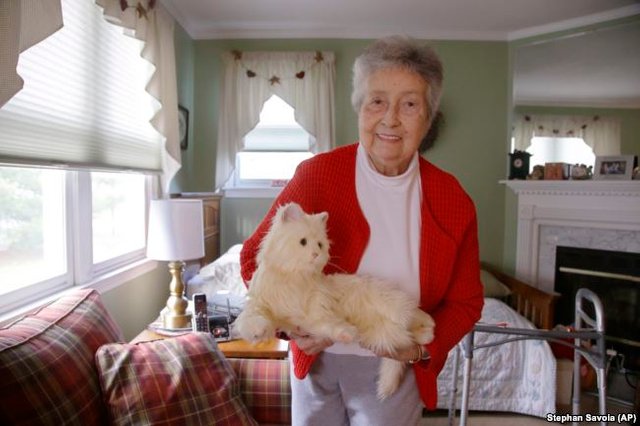
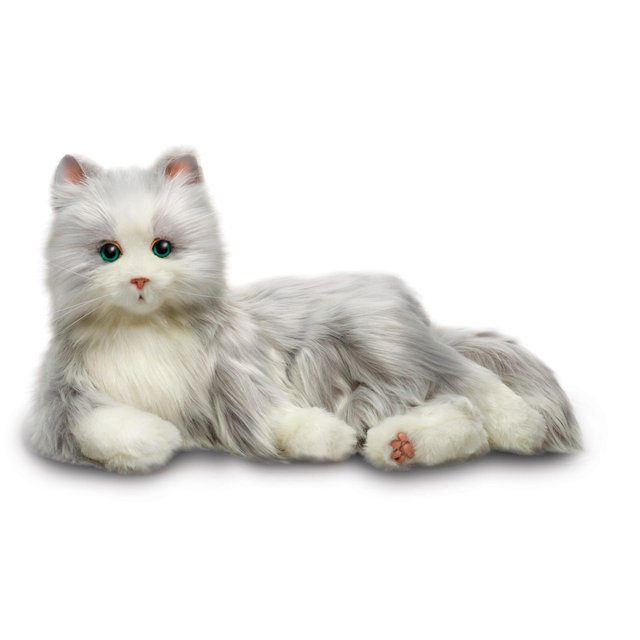
I hope they bring this to market soon! Just the medicine reminder alone is epic. I just spent over $50 to buy a set of medication alarm bottles for my parents who are more consistently missing medication doses than taking them. Of course I had to program the bottles because that would have proved too difficult. Now, who knows if they actually take their meds when the bottle beeps or check to see if the bottle is flashing to warn of a missed dose? I'd love the cat/dog to have someway of confirming that they actually took it - maybe the cat could have a Bluetooth connection to the medicine bottle and it would send a signal to the cat that yes, there bottle was actually opened and then the cat could make some sort of happy sound and send me a text daily that says - yes! Your parents are well. I'm liking this cat more and more! I think I'll name mine Felicity. 😺
Absolutely, the medicine reminder is important and the companionship is important as well! Also in regard to your point about a reminder to kids and loved ones I think that is an outstanding idea and it's even most likely in the works!
So. I'm part of the problematic generation, the baby boomers. I'm guessing robotics will play a huge part in the end of my life. I live alone. I like it that way.
So far, I have been focused on auto driving vehicles. I can foresee a time when it would be really nice to have a driver. I'm no where near that point yet, but I can see it from here.
I think the cats can/do give a sense of optimism. Having been a caretaker for my aunt and mother, I get the importance of that. I think it is as important as anything else in the aging and dying process.
Will I want a cat? Probably not :) I just adopted a young dog that hopefully will be my boon companion into my 80s. If I make it that long, it'll be a damn fine run. It's already been a good run, and I'm no where near done.
Thanks for a wonderful, thoughtful article. I appreciate everything about Adsactly...
These are really heartfelt words. I think I can definitely understand where you are coming from and I'm glad to hear that you're giving that new puppy of yours a warm and loving home!
Personally, I first learned about such robotic cats. The fact that they perform useful functions and they have some advantages over straining with ordinary "live" cats - is of interest. First of all, they do not require so much care for themselves and this is undoubtedly a plus, especially for the elderly. In addition, those functions that robotic koshla performs for the elderly are simply vital - for example, to remind you to take the medicine.
The main function that any robo-mechanism must perform, whether it is a humanlike robot or koshla is a robot, is executed. That is, in my opinion the main function is to help a person and improve the quality of his life. The robot as a matter of fact takes a part of important duties on itself and perfectly with it consults.
I think that progress is moving in the right direction and soon such homemade robo-pets will be something ordinary. No one will be surprised to have a robot in the house of an ordinary person.
Thank you for the interesting article, I like to observe the development of technologies, including in the robotics industry.
I'm happy you enjoyed this article!
I think this is a pretty cool idea, especially for patients suffering from conditions such as Dementia or Alzheimer's.
My girlfriend's grandmother is currently in the early to mid stages of Alzheimier's and is being cared for in a nursing home. The home have provided her with a toy doll, who she looks after every day. She loves the thing, it keeps her company and keeps her grounded by giving her something familiar that she can cradle and care for. She knows it's a toy, there's no confusion surrounding that. But, it's just the fact that she has something she can keep with her and look after that makes it so effective and keeps her calm and happy.
When I went to visit her to meet her for the first time, the first thing she did was introduce me to her doll, tell me her name and let hold her. Seeing the smile on her face as I brushed the doll's hair and dressed her for the day was a real privilege and brought my SO to tears.
Things like this may seem weird from the outside, or to people with no real experience of them. But they're so simple and so valuable and can go such a long way to being a genuine help to a lot of people.
Absolutely patients suffering from dementia have a lot to gain in regard to these new robotic pets. Beyond the reminders I would imagine it could be quite lonely and disorienting having dimentia and a familiar friend (even if it is a robot) is better than spending days alone aimlessly.
This is just one of the few areas Artificial intelligence is helping to solve real problems , it would be nice to see how this does in terms of adoption among the elderly, the need for companionship at that age is very important and this cat seems to fit that need .
Companionship for the elderly comes at a very high price with nursing homes and home care assistants becoming very expensive, this cat can help reduce the cost.
Pretty cool. It's important for the elderly to find purpose in their life. Even if this cat is a robot, it helps to fill that void for companionship and to feel needed.
Japan is taking this need for the elderly very seriously. They have 20% elderly rate in their country and know that robots can take a serious role in helping them in assisted living.
Japanese companies are leading in the development of Carebots.
Source
What a good idea. My mother was in a nursing home for dementia before she died. She always loved cats and this would have been of comfort to her.
Very nice post. Thank you bro.
I totally want a carebot for myself! If it could just blow-dry and style my hair (ala the Jetsons) I would be sold. My parents could really use one but I wonder if it would creep them out. I could see them accepting the robo-cat (or maybe preferably a robo-dog - as we were always dog people) more easily.
The Japanese are making amazing strides in robotics! I'm extremely impressed with their newest generation of robotic friends!
Yeah, they are the leaders in this area. And they have a huge motivation to get it right asap! Their aging population is huge!
Looks real!!!
thats an innovative way to combat loneliness in elderly homes. I would recommend it to my grandma who is head over heals in love with cats but she is growing older by the day and clean up after her feline friends is proving trickier with the back problems assigned to old age. This is the solution she was looking for.
So cute but it is sad that it is lifeless.